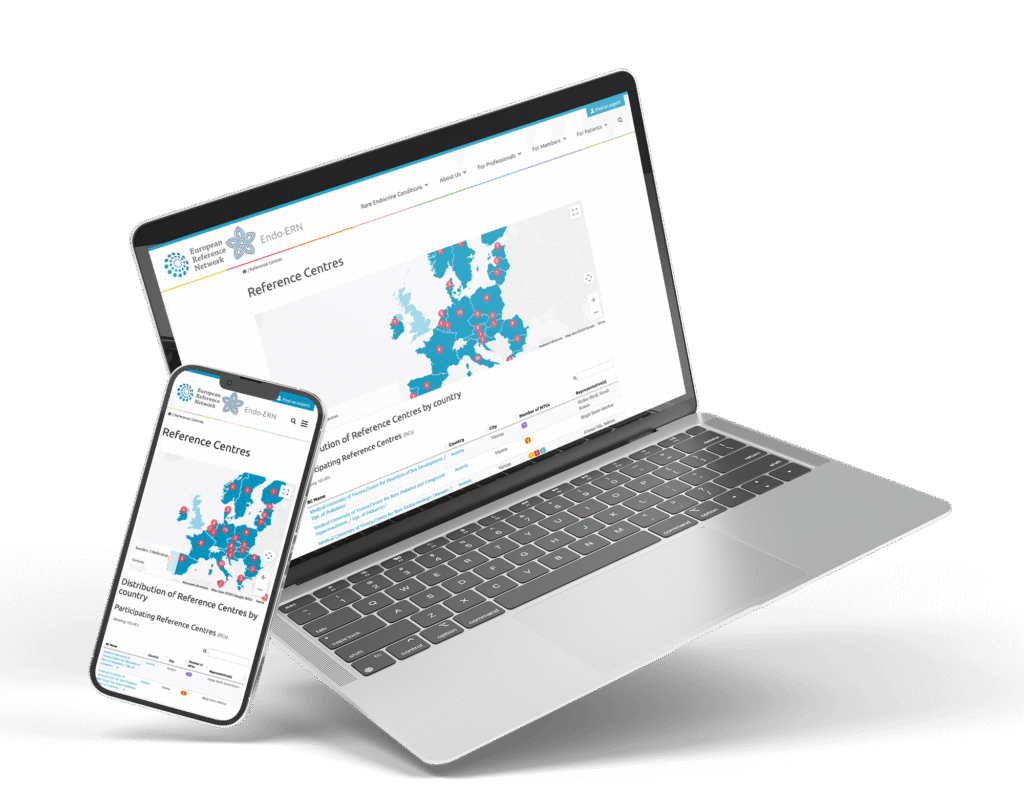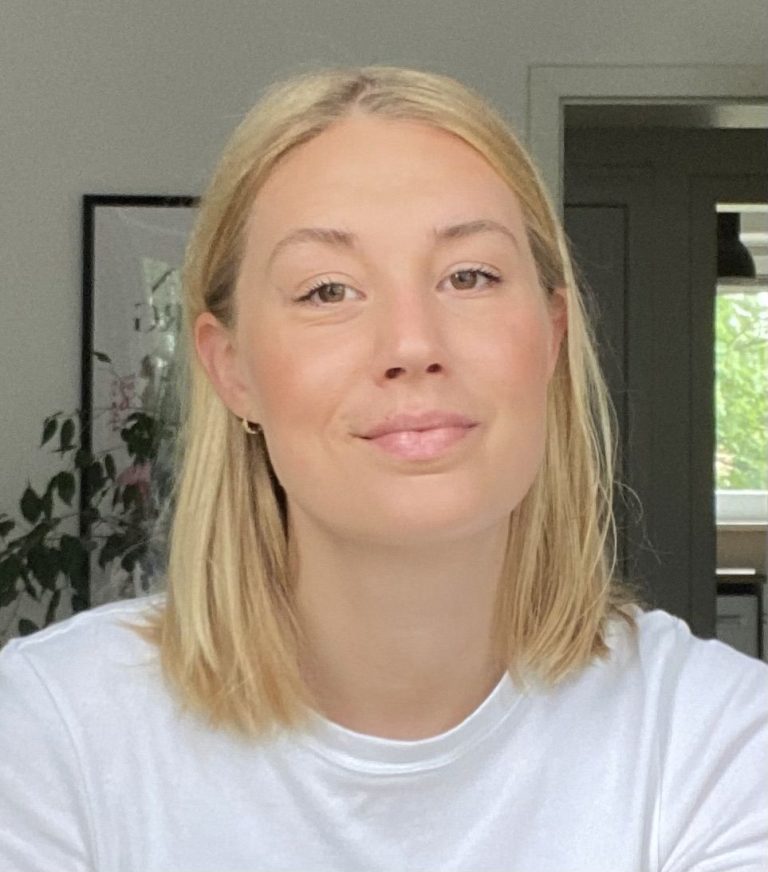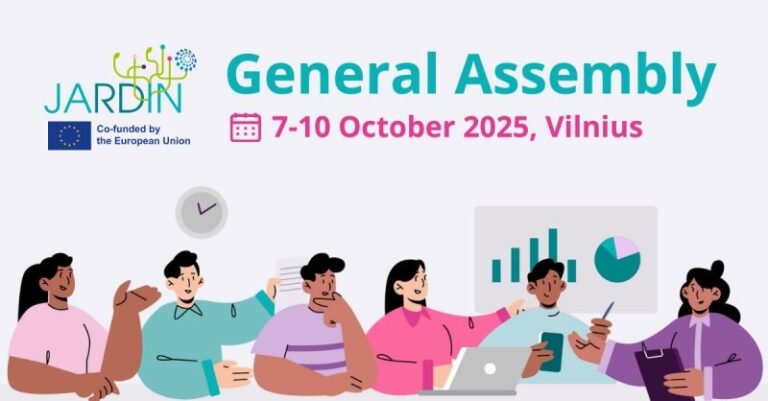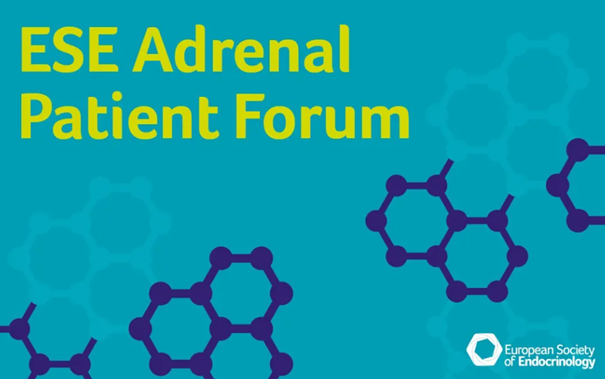COMPLETE: ERDERA survey
We kindly invite you to complete a short survey developed by ERDERA Work Package 25 – Task 4, which aims
Helping clinicians across Europe access specialised expertise, improve care, and support patients with rare endocrine diseases.
Through Endo-ERN, you can request virtual consultations with leading experts, access consensus-based clinical guidance, and benefit from dedicated education and training resources. Your role as the main point of care remains essential — Endo-ERN simply brings European expertise to your patients without the need to travel.





Use this section to describe your company and the services you offer. You could share your company’s story and details about why you are in business. The goal is to create a connection with the visitor and give them confidence to work with you.
This text briefly introduces visitors to your main services.

A short description of the service and how the visitor will benefit from it.

A short description of the service and how the visitor will benefit from it.

A short description of the service and how the visitor will benefit from it.

A short description of the service and how the visitor will benefit from it.
A short description of the benefit.
A short description of the benefit.
A short description of the benefit.
A short description of the benefit.



© 2025 All Rights Reserved.
Endo-ERN is a network connecting patients and healthcare providers across Europe, aiming to provide knowledge and resources for diagnosis and treatment of rare endocrine conditions.

Virtual consultations across national borders: expert care throughout Europe, no travel required.
We kindly invite you to complete a short survey developed by ERDERA Work Package 25 – Task 4, which aims

The CPMS Helpdesk is a resource to support all CPMS users with any technical issues that they have using the

The European Rare Diseases Research Alliance (ERDERA) has a call for the Networking Support Scheme (NSS). The deadline for this

We are pleased to welcome Laura Maag as a new patient representative for the French association Surrénales. A dedicated member
Cristina Eller-Vainicher and Giovanna Mantovani at member institution Fondazione Cà Granda IRCCS Ospedale Maggiore Policlinico, Milan, Italy are currently conducting

We are pleased to welcome new ePAG Marc Büdenbender to Endo-ERN and MTG1. Marc joined the board of Let’s Cure
Reigster now for the 2nd International Conference on Clinical Research Networks for Rare Diseases, organised by IRDiRC, ERDERA, and Rare

We are pleased to inform you that registration is now open for the JARDIN General Assembly 2025. The annual meeting
This event will be conducted in Italian. Serie di Webinars SIE-SIEDP sulle malattie endocrine rare per specialisti italiani (Joint SIE-SIEDP
This event will be conducted in Italian. Webinars SIE-SIEDP sulle malattie endocrine rare: una serie di webinars rivolti agli specialisti

Are you living with or caring for someone affected by adrenocortical carcinoma (ACC)? Join us for Living with ACC: Care,
Endo-ERN endorsed this upcoming meeting being hosted at the Meyer Health Campus Wednesday, 17 September, 2025. Morning Sessions (9:30 AM

Participating Reference Centres
Clinical Patient Management System (CPMS), a secure web-based application that supports the European Reference Networks in the diagnosis and treatment of rare or low-prevalence complex diseases or conditions across national borders, our multidisciplinary teams of experts are able to give virtual consultations to diagnose, suggest treatment or surgery, and then provide post-operative and transitional support.

Access CPMS
For classification of endocrine conditions, there are eight main thematic groups (MTG) defined within Endo-ERN. These MTGs are organ and/or physiology based, cover care throughout the entire lifespan of patients and cover the total spectrum of congenital and acquired conditions.
MTG1
Rare adrenal disorders comprise those with hormonal oversecretition and/or overgrowth and those with inappropriate low endocrine functionality. Oversecretion and tumour growth often requires surgical or targeted medical therapy, patients with adrenal insufficiency need hormonal replacement therapy.
MTG2
Calcium and Phosphate Homeostasis is of major importance to a large number of hysiological processes thereby affecting several organ systems typically bone, muscles, kidney, brain with consequences on quality of life and risk of chronic disability.
MTG3
For genetic disorders of glucose and insulin homeostasis 3 subthematic subgroups are defined: Insulin-resistance syndrome; Hyperinsulinism and other forms of hypoglycemia Rare diabetes mellitus.
MTG4
Multi-organ conditions that are dominantly inherited, and manifest throughout childhood and adult life. In recent years predictive testing has been introduced, with patients being identified in the preclinical state, and often in early childhood.
MTG5
A group of imprinting disorders for which care have been well organised: Prader Willi Syndrome, Silver Russell Syndrome, and Beckwith Wiedemann Syndrome and a group of Growth hormone and IGF-I insensitivity including Laron and Noonan Syndrome, as well as other overgrowth and growth retardation syndromes.
MTG6
Rare pituitary disorders are a group of various clinical syndromes with low prevalence (main groups 100-500 million, specific diseases/genetic disorders less than 1 million) requiring multidisciplinary and lifelong care because of the central endocrine function of the pituitary.
MTG7
This Main Thematic Group (MTG) is dedicated to the Disorders of sex development (DSD) and the Disorders of sex maturation (DSM). These are medical conditions involving the reproductive system in both sexes.
MTG8
There are 3 subthematic groups for Thyriod: a) Rare Thyroid Hormone Signaling Disorders (causing defect in thyroid hormone signaling and action), b) congenital hypothyroidism (a rare disorder for which all newborns in the EU are screened immediately after birth) and hyperthyroidism, and c) non-metastatic thyroid carcinoma.
Access to rare disease expertise without the need to travel is a core ERN objective. Our ePAGs contribute to all Endo-ERN activities.
